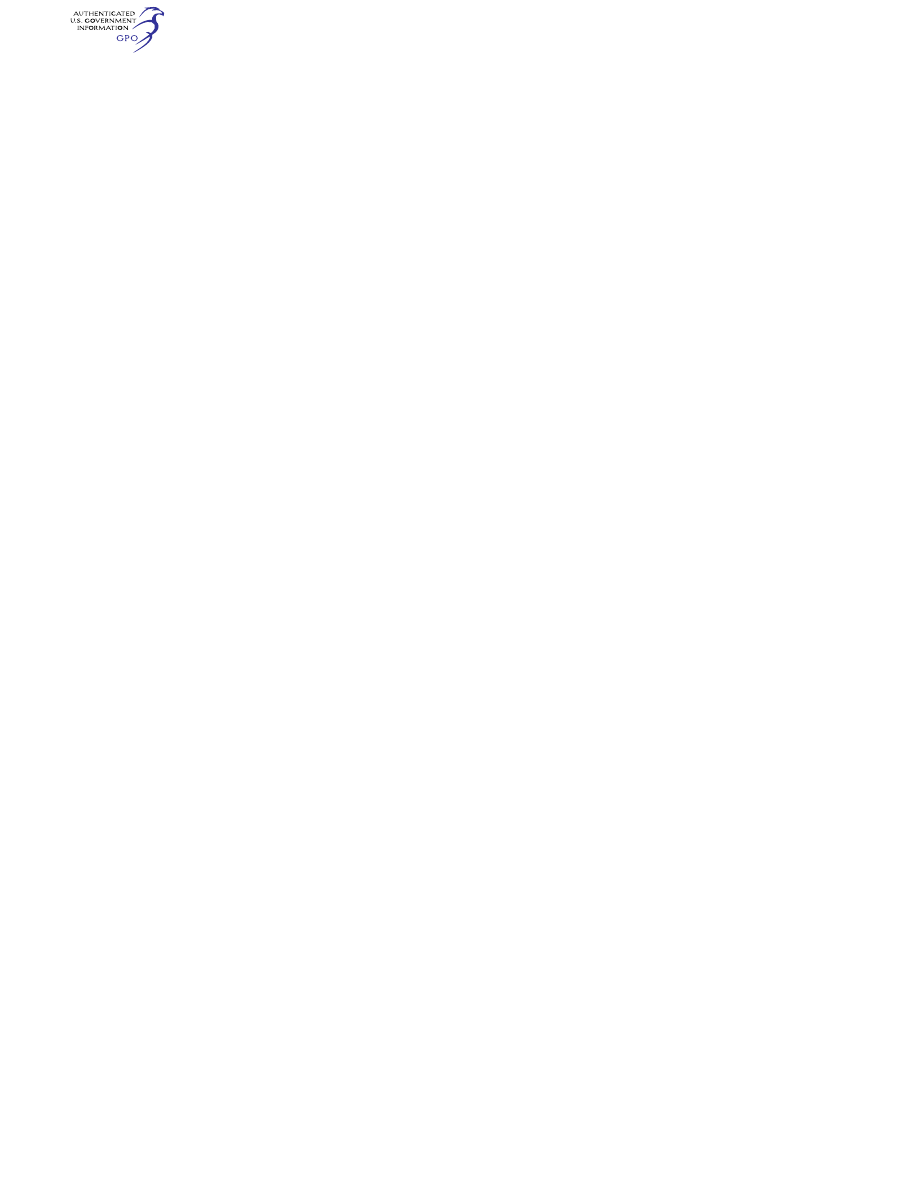
537
Federal Aviation Administration, DOT
§ 27.993
not less than 2 percent of the tank ca-
pacity. It must be impossible to fill the
fuel tank expansion space inadvert-
ently with the rotorcraft in the normal
ground attitude.
[Amdt. 27–23, 53 FR 34213, Sept. 2, 1988]
§ 27.971
Fuel tank sump.
(a) Each fuel tank must have a drain-
able sump with an effective capacity in
any ground attitude to be expected in
service of 0.25 percent of the tank ca-
pacity or
1
⁄
16
gallon, whichever is great-
er, unless—
(1) The fuel system has a sediment
bowl or chamber that is accessible for
preflight drainage and has a minimum
capacity of 1 ounce for every 20 gallons
of fuel tank capacity; and
(2) Each fuel tank drain is located so
that in any ground attitude to be ex-
pected in service, water will drain from
all parts of the tank to the sediment
bowl or chamber.
(b) Each sump, sediment bowl, and
sediment chamber drain required by
this section must comply with the
drain provisions of § 27.999(b).
[Amdt. 27–23, 53 FR 34213, Sept. 2, 1988]
§ 27.973
Fuel tank filler connection.
(a) Each fuel tank filler connection
must prevent the entrance of fuel into
any part of the rotorcraft other than
the tank itself during normal oper-
ations and must be crash resistant dur-
ing a survivable impact in accordance
with § 27.952(c). In addition—
(1) Each filler must be marked as pre-
scribed in § 27.1557(c)(1);
(2) Each recessed filler connection
that can retain any appreciable quan-
tity of fuel must have a drain that dis-
charges clear of the entire rotorcraft;
and
(3) Each filler cap must provide a
fuel-tight seal under the fluid pressure
expected in normal operation and in a
survivable impact.
(b) Each filler cap or filler cap cover
must warn when the cap is not fully
locked or seated on the filler connec-
tion.
[Doc. No. 26352, 59 FR 50387, Oct. 3, 1994]
§ 27.975
Fuel tank vents.
(a) Each fuel tank must be vented
from the top part of the expansion
space so that venting is effective under
all normal flight conditions. Each vent
must minimize the probability of stop-
page by dirt or ice.
(b) The venting system must be de-
signed to minimize spillage of fuel
through the vents to an ignition source
in the event of a rollover during land-
ing, ground operation, or a survivable
impact.
[Doc. No. 5074, 29 FR 15695, Nov. 24, 1964, as
amended by Amdt. 27–23, 53 FR 34213, Sept. 2,
1988; Amdt. 27–30, 59 FR 50387, Oct. 3, 1994;
Amdt. 27–35, 63 FR 43285, Aug. 12, 1998]
§ 27.977
Fuel tank outlet.
(a) There must be a fuel stainer for
the fuel tank outlet or for the booster
pump. This strainer must—
(1) For reciprocating engine powered
rotorcraft, have 8 to 16 meshes per
inch; and
(2) For turbine engine powered rotor-
craft, prevent the passage of any object
that could restrict fuel flow or damage
any fuel system component.
(b) The clear area of each fuel tank
outlet strainer must be at least five
times the area of the outlet line.
(c) The diameter of each strainer
must be at least that of the fuel tank
outlet.
(d) Each finger strainer must be ac-
cessible for inspection and cleaning.
[Amdt. 27–11, 41 FR 55470, Dec. 20, 1976]
F
UEL
S
YSTEM
C
OMPONENTS
§ 27.991
Fuel pumps.
Compliance with § 27.955 may not be
jeopardized by failure of—
(a) Any one pump except pumps that
are approved and installed as parts of a
type certificated engine; or
(b) Any component required for pump
operation except, for engine driven
pumps, the engine served by that
pump.
[Amdt. 27–23, 53 FR 34213, Sept. 2, 1988]
§ 27.993
Fuel system lines and fittings.
(a) Each fuel line must be installed
and supported to prevent excessive vi-
bration and to withstand loads due to
fuel pressure and accelerated flight
conditions.
(b) Each fuel line connected to com-
ponents of the rotorcraft between
VerDate Sep<11>2014
09:06 Jun 28, 2024
Jkt 262046
PO 00000
Frm 00547
Fmt 8010
Sfmt 8010
Y:\SGML\262046.XXX
262046
jspears on DSK121TN23PROD with CFR